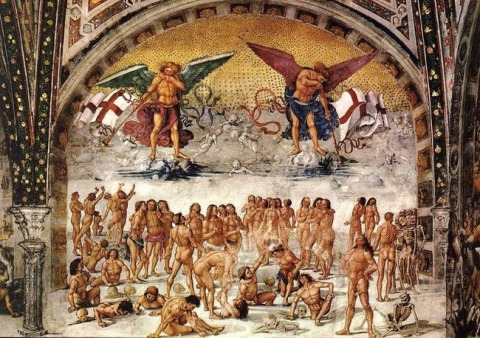
Just a little thought about unanticipated consequences.
According to Thomas Aquinas, what makes the immortality of the soul believable apart from revelation is the power of the mind to grasp universals – an ability that transcends the bodily senses, because the eye sees only this apple, and the ear hears only this robin. This shows that there is something about the soul that does not depend on the body. Consequently, the soul is not snuffed out when the body dies. While awaiting the resurrection of the body, it continues in existence.
But William of Ockham says there are no universals; nothing exists but singulars. I think nominalism is incoherent – but suppose it were true. If there are no universals, then there is no power of the mind to grasp them. If there is no power of the mind to grasp them, then there is nothing about the soul that transcends the body. If there is nothing about the soul that transcends the body, then there is no reason to think that the soul survives the body’s death. So if he denies universals, it’s hard to see why he shouldn’t deny immortality too. At best he might suppose that in the resurrection, God recreates the soul, raising a serious question about identity.